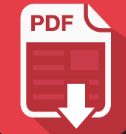The debate on the re-opening of schools during the COVID-19 pandemic has sparked a lot of controversies when on 15 January, Deputy Minister of Basic Education, Reginah Mhaule, made the announcement that private schools will be opening earlier than public schools. The controversy centers on historic debates about having two schooling systems that are unequal, and which only benefit the elite. Movements like the Congress of South African Students (COSAS) have come forward to strongly oppose this system. While private schools have been open for some time now, public schools have not because they do not meet the health and safety regulations for COVID-19. Private schools have their own calendar that is not regulated by the Department of Education, and this system only continues to deepen inequality.
While public schools are set to open tomorrow, there are still concerns about learners and teachers being exposed to COVID-19. There is a fear that learners are being expected to return to schools that are not properly equipped to deal with COVID-19.
On 13 January, the University of Johannesburg (UJ) Human Rights Sciences Research published a report based on a survey conducted regarding the re-opening of schools during the second wave of COVID-19. The report states that 53% of adults from economically disadvantaged communities (R1000 income households) think schools should remain closed because they don’t have confidence that the government can provide a safe environment for their children. On the other hand, while 19% of those from higher-income households think only Grades 7 and 12 should open, most feel that all grades should return to school.
The scepticism around public schools is warranted as over 7 000 principals who participated in an education trade union survey have indicated that their schools are not ready to open. This is due to a lack of electricity and water in their schools, poor sanitation, lack of Personal Protective Equipment (PPEs), and little space for effective social distancing.
Over 1 600 teachers have reportedly died of COVID-19, while the actual number is certainly higher due to unreported cases. The second wave is proving to be much deadlier than the first, yet the government insists on risking the lives of learners and teachers by re-opening ill-prepared schools. The Gauteng government spent R431 million in 2020 on deep cleaning, decontamination, and disinfection of schools (which has sparked much controversy), and yet has not fixed any key infrastructures to ensure that the public schooling system catches up with the private one.
Khanya College will continue to monitor schools for readiness and the impacts of COVID-19 on the education system.
This article was submitted on 9 February 2021. You may republish this article, so long as you credit the authors and Karibu! Online (www.Karibu.org.za), and do not change the text. Please include a link back to the original article.


 Download PDF
Download PDF
